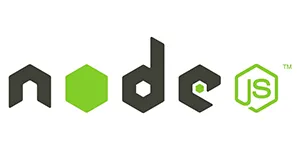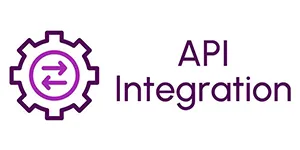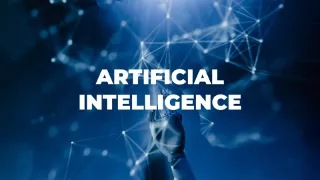Intelligent Automation Systems (IAS)
Smarter than the average bear.
Intelligent automation systems are revolutionizing business operations by combining artificial intelligence (AI) automation with other systems and technologies. These systems streamline decision-making processes and enhance productivity for organizations of all sizes. With the use of machine learning and advanced cognitive technologies, intelligent automation systems help connect people, processes, and technology for better efficiency. Discover Cream Digital Ai’s Intelligent Automation Systems today with a Free IA Systems Demo.







What is Intelligent Automation?
Intelligent automation (IA) is a cutting-edge approach that integrates artificial intelligence (AI), business process management (BPM), and robotic process automation (RPA) to streamline and optimize complex business processes. It involves the use of advanced technologies to automate tasks, facilitate decision-making, and improve operational efficiency. By combining AI and automation, intelligent automation enhances the speed and quality of business processes, offering a strategic advantage to organizations seeking to stay competitive in the digital era.
This innovative approach to automation goes beyond the traditional rule-based automation by leveraging AI technologies such as machine learning, natural language processing, and computer vision. IA enables the handling of unstructured data, facilitates cognitive decision-making, and empowers organizations to tackle increasingly complex tasks with minimal human intervention. The application of intelligent automation is diverse, spanning across industries and functional areas, and it has the potential to revolutionize the way businesses operate and deliver value to their customers.
Key Technologies
The key technologies that form the foundation of intelligent automation include artificial intelligence, which encompasses machine learning, natural language processing, and cognitive computing. These AI technologies enable the system to understand, learn, and make decisions based on large and unstructured data sets. In addition, automation technologies such as RPA and BPM provide the framework for orchestrating and executing a wide range of business processes and tasks.
Moreover, computer vision plays a crucial role in intelligent automation, allowing the system to interpret and understand visual information from images, videos, and other sources. This capability is instrumental in automating tasks that involve the analysis of visual data, such as quality control in manufacturing or character recognition in document processing. The seamless integration of these advanced technologies is the cornerstone of intelligent automation, enabling organizations to achieve new levels of operational excellence and drive digital transformation initiatives.
Benefits of Intelligent Automation
Intelligent automation offers a myriad of benefits for organizations looking to enhance their operational efficiency, reduce costs, and deliver exceptional customer experience. By automating and optimizing business processes, IA can significantly increase productivity and output, allowing employees to focus on high-value, strategic initiatives. Furthermore, the use of intelligent automation results in improved accuracy and compliance by minimizing the margin of human error and ensuring adherence to regulatory standards.
Another key benefit of intelligent automation is the ability to leverage AI-powered insights and analytics to make data-driven decisions and predictions, leading to better business outcomes. Additionally, IA contributes to the acceleration of process cycles, leading to faster delivery times and a more agile response to market dynamics. The implementation of intelligent automation also has a positive impact on employee satisfaction and retention by offloading repetitive tasks and allowing individuals to engage in more stimulating and rewarding activities.
Intelligent Automation Use Cases
Intelligent automation has a wide range of applications and use cases across industries, demonstrating its versatility and potential to drive significant improvements in various business processes. In the financial services sector, for example, IA is utilized for automating and enhancing the accuracy of regulatory compliance processes, risk assessment, and fraud detection. This not only reduces the operational risk for financial institutions but also ensures robust compliance with industry regulations.
Another prominent use case for intelligent automation is in customer service and support, where AI-powered chatbots and virtual ai assistants are deployed to provide personalized and efficient customer interactions. These digital workers can handle a variety of customer inquiries, provide relevant information, and escalate complex issues to human agents when necessary, contributing to enhanced customer satisfaction and loyalty. Moreover, in healthcare, intelligent automation is leveraged for tasks such as medical data analysis, predictive analytics, and personalized patient care, leading to improved outcomes and operational efficiency.
Implementation and Social Challenges
While intelligent automation holds tremendous promise, its implementation is not without challenges. One of the primary hurdles is the integration of complex IA technologies with existing IT infrastructure and legacy systems. This integration often necessitates significant changes to the IT environment and requires a well-thought-out strategy to ensure seamless coexistence and interoperability.
Furthermore, the ethical and societal implications of intelligent automation, particularly in relation to job displacement and data privacy, present significant challenges that organizations must address. The responsible and ethical use of AI and automation technologies is a critical consideration in the deployment of intelligent automation systems, requiring clear guidelines and governance mechanisms to mitigate potential risks and ensure the well-being of employees and stakeholders.
Intelligent Automation Systems Tools and Platforms
The landscape of intelligent automation tools and platforms is rapidly evolving, offering organizations a diverse range of solutions to support their automation journey. Leading Ai Automation Agencies and artificial intelligence technology providers offer comprehensive IA platforms that encompass a wide array of capabilities, including AI-powered process automation, cognitive document processing, and process mining. These platforms are designed to be scalable, flexible, and capable of addressing the unique automation needs of different industries and business functions.
Moreover, the integration of intelligent automation with cloud services and other emerging technologies further expands the potential of these tools, allowing organizations to harness the power of AI and automation in a cost-effective and efficient manner. For instance, the integration of IA with cloud-based AI services enables organizations to leverage advanced AI capabilities, such as image and speech recognition, without significant upfront investment in infrastructure and technical resources.
Future Trends
The future of intelligent automation is marked by several compelling trends that are poised to reshape the business landscape. One such trend is the increasing convergence of AI and RPA, leading to the development of more advanced and sophisticated automation solutions. This integration enables the seamless orchestration of end-to-end business processes, combining the cognitive capabilities of AI with the execution and integration capabilities of RPA.
Furthermore, the continued advancement of AI technologies, including deep learning and generative AI, holds the potential to unlock new levels of innovation and automation capabilities. These AI advancements empower intelligent automation systems to handle more complex tasks, engage in human-like reasoning, and drive greater value across a diverse range of industry applications. Additionally, the growing emphasis on explainable AI and AI governance is expected to shape the responsible and transparent use of AI within intelligent automation systems, addressing concerns related to bias, accountability, and trust.
Successful Implementations
Several organizations have demonstrated the transformative impact of intelligent automation through successful implementations across various domains. In the insurance industry, for instance, the adoption of IA has led to significant improvements in claims processing, underwriting, and customer service, resulting in faster turnaround times and higher accuracy. By leveraging AI and automation, insurance companies have been able to extract and analyze relevant data from diverse sources, leading to more informed decision-making and personalized customer experiences.
Likewise, in the manufacturing sector, the use of intelligent automation has enabled companies to optimize production processes, perform predictive maintenance, and ensure consistent product quality. By harnessing AI technologies for predictive analytics and autonomous systems for physical process automation, manufacturers have achieved higher levels of operational efficiency, reduced downtime, and minimized the occurrence of errors and defects. These examples underscore the potential of intelligent automation to drive tangible business outcomes and create a competitive advantage for early adopters.
Intelligent Automation vs Robotic Process Automation
While robotic process automation (RPA) focuses on automating repetitive, rules-based tasks, intelligent automation (IA) represents a more advanced and comprehensive approach that combines the power of AI, machine learning, and RPA to automate and optimize a wide range of business processes. Unlike traditional RPA, which operates based on predefined rules and structured data, intelligent automation has the ability to handle unstructured data, learn from patterns, and make data-driven decisions, mimicking human cognitive capabilities in the automation of complex tasks.
Furthermore, intelligent automation encompasses a broader spectrum of technologies and capabilities, including natural language processing, cognitive document processing, and advanced analytics, enabling organizations to address a diverse set of business challenges and opportunities. While RPA is well-suited for automating manual and repetitive tasks, intelligent automation is capable of driving end-to-end process transformation, enhancing decision-making, and delivering a superior customer experience through the use of AI-powered digital workers and cognitive automation.
Intelligent Automation Systems in Business
Intelligent automation represents a paradigm shift in the approach to business process automation, driven by the convergence of artificial intelligence, robotic process automation, and advanced cognitive technologies. It encompasses the use of AI-powered digital workers, cognitive automation, and machine learning capabilities to streamline and optimize business workflows, decision-making processes, and task execution. By combining the strengths of AI and automation, intelligent automation empowers organizations to tackle complex tasks, extract valuable insights from data, and deliver seamless and exceptional customer experiences. Cream Digital Ai, an Ai Automation Agency, is at the forefront of intelligent automation systems development with their Ai phone agents and integrated Ai Avatar digital assistants.
This innovative approach to automation goes beyond the traditional rule-based automation by leveraging AI technologies such as machine learning, natural language processing, and computer vision. IA enables the handling of unstructured data, facilitates cognitive decision-making, and empowers organizations to tackle increasingly complex tasks with minimal human intervention. The application of intelligent automation is diverse, spanning across industries and functional areas, and it has the potential to revolutionize the way businesses operate and deliver value to their customers.
Key Technologies Involved
The key technologies that form the foundation of intelligent automation include artificial intelligence, which encompasses machine learning, natural language processing, and cognitive computing. These AI technologies enable the system to understand, learn, and make decisions based on large and unstructured data sets. In addition, automation technologies such as RPA and BPM provide the framework for orchestrating and executing a wide range of business processes and tasks.
Moreover, computer vision plays a crucial role in intelligent automation, allowing the system to interpret and understand visual information from images, videos, and other sources. This capability is instrumental in automating tasks that involve the analysis of visual data, such as quality control in manufacturing or character recognition in document processing. The seamless integration of these advanced technologies is the cornerstone of intelligent automation, enabling organizations to achieve new levels of operational excellence and drive digital transformation initiatives.
Benefits of Implementing Intelligent Automation
Intelligent automation offers a myriad of benefits for organizations looking to enhance their operational efficiency, reduce costs, and deliver exceptional customer experience. By automating and optimizing business processes, IA can significantly increase productivity and output, allowing employees to focus on high-value, strategic initiatives. Furthermore, the use of intelligent automation results in improved accuracy and compliance by minimizing the margin of human error and ensuring adherence to regulatory standards.
Another key benefit of intelligent automation is the ability to leverage AI-powered insights and analytics to make data-driven decisions and predictions, leading to better business outcomes. Additionally, IA contributes to the acceleration of process cycles, leading to faster delivery times and a more agile response to market dynamics. The implementation of intelligent automation also has a positive impact on employee satisfaction and retention by offloading repetitive tasks and allowing individuals to engage in more stimulating and rewarding activities.
Final Thoughts
Intelligent automation systems combine AI and automation technologies to streamline and scale decision-making processes in organizations. Through the use of generative AI, IA offers intelligent recommendations and can speed up process automation and app delivery. It has various benefits such as enhancing productivity and reducing the need for manual tasks. Despite its challenges, IA is a promising tool with future trends and successful implementations in various industries. It is crucial to understand its distinction from robotic process automation and to consider key technologies when implementing it for optimal results. Overall, intelligent automation offers enterprises the opportunity to connect people, processes, and technology for better efficiency and allows teams to focus on more important tasks.
Who can benefit from our Ai Custom Development Services?
Automotive Industry
Aviation Industry
Construction Companies
Education & Schools
Energy, Oil, and Gas
Entertainment Industry
Financial Services
Food & Hospitality Industry
Fundraising Campaigns
Government & Defense
Healthcare Industry
Insurance Companies
IT Companies
Pharmaceutical Companies
Real Estate Companies
Retail Businesses
Supply Chain & Logistics
Travel Industry
Ai won't replace your business.
BUT A COMPANY USING AI WILL.
Embrace Technology. Your Customers Deserve It.
What can Ai do for your business?
Whether you're looking to enhance your business with Ai Marketing Automation Tools, Ai Phone Sales Agents, Ai Customer Service Call Centers, or Ai Support for Human Resources, our Ai Business Solutions can integrate into almost anything. Each custom business development solution is tailored to handle things like phone, email, CRM updates, SMS conversations, billing updates, phone orders, and much more. Cream's Ai Infrastructures can do almost anything a human can do. And by enriching your customer's experience with Ai representatives, you can now handle more calls and simultaneous tasks with precision accuracy around the clock.
Don't let this opportunity pass you by. While you are thinking about integrating Ai into your business, another company is in the process of building their own custom Ai Solution right now! Schedule a free demo where we'll build a custom Ai solution specifically designed for your business so you can see the power of Ai in action.
Latest Ai Insights
Read the lates Artificial Intelligence news, technology updates, regulation changes, and industry trends and insights.

Quen 2.5: Over 100 Open-Source AI Models from Alibaba Cloud
Alibaba Cloud, the cloud computing arm of Alibaba Group, has made a groundbreaking announcement during their annual Apsara Conference. The release of over 100 open-source AI models, known as Qwen 2.5... ...more
Ai News
October 07, 2024•8 min read

Best Long-form Ai Content Writers
Tired of ChatGPT spitting out 1,000 word articles when your competition is outranking you with 5,000-word articles? Look no further, Cream Digital Ai has got some long-form Ai writing tools for you. ...more
Ai Business Ideas
October 07, 2024•15 min read

The History of Artificial Intelligence
Ever wonder where AI came from and how the history of AI (artificial intelligence) progressed over time? Here's a tour from the beginning of Ai till now and what the future holds. ...more
Ai Trends and Insights
October 07, 2024•14 min read

Upcoming AI Laws and Regulations in the USA
At Cream Digital Ai, we are constantly staying up-to-date with the latest developments in AI regulations to provide our clients with cutting-edge solutions. ...more
Ai Regulation
October 06, 2024•11 min read

What is Generative AI?
Generative AI, short for Generative Adversarial Networks (GANs), is a powerful category of artificial intelligence that has surged to the forefront of the technology landscape. ...more
Ai Technology
October 04, 2024•10 min read

Types of Ai (Artificial Intelligence)
In this article, we'll dive into the different types of AI (Artificial Intelligence) based on both its capabilities and functionalities. ...more
Ai Technology
October 01, 2024•10 min read
Frequently Asked Questions
Who doesn't have questions about Ai?
Schedule a one-on-one meeting today and see how our Ai Development Agency can transform your business today.
What's an example of an Intelligent Automation System?
An example of an Intelligent Automation System is an AI Phone Agent who answers a call, has a conversation with a customer, escalates it to another representative, and updates the CRM with call notes and schedules a call back for next week.

© Cream Digital Marketing, LLC 2025 All Rights Reserved

